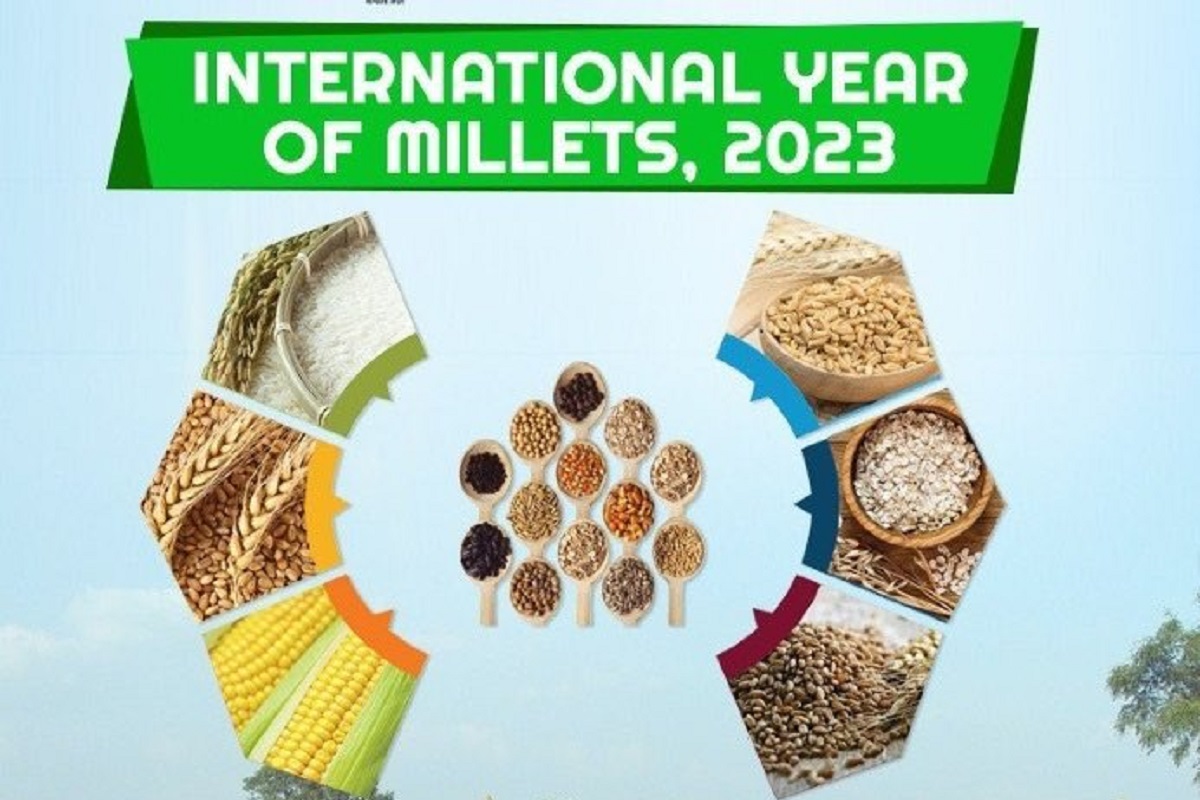PM Modi honors Mohammed Rafi on 100th birth anniversary
PM Modi honors Mohammed Rafi on his 100th birth anniversary, celebrating his timeless music and enduring cultural legacy.
The resolution titled ‘International Year of Millets 2023’ was initiated by India with Bangladesh, Kenya, Nepal, Nigeria, Russia and Senegal and was co-sponsored by over 70 nations.

Representative Image
The UN General Assembly (UNGA) adopted by consensus a resolution sponsored by India and supported by over 70 nations declaring 2023 as the International Year of Millets, aimed at raising awareness about the health benefits of the grain and their suitability for cultivation under changing climatic conditions.
The resolution titled ‘International Year of Millets 2023’ was initiated by India with Bangladesh, Kenya, Nepal, Nigeria, Russia and Senegal and was co-sponsored by over 70 nations.
Advertisement
The 193-member General Assembly unanimously adopted the resolution, declaring 2023 as the International Year of Millets.
Advertisement
“While millet cultivation has been historically widespread, their production is declining in many countries. There is an urgent need to promote the nutritional and ecological benefit of millets to consumers, producers, and decision-makers, to improve production efficiencies, research, and development investments and food sector linkages,” India’s Permanent Representative to the UN Ambassador TS Tirumurti said on Wednesday.
India’s Permanent Mission to the UN also distributed savoury millet snack “murukku” to all UN Member States.
On the occasion, Prime Minister Narendra Modi tweeted, “Gratitude to all the nations who initiated and co-sponsored the resolution on International Year of Millets at the @UN. Distinguished delegates were also served delicious Millet Murukku! This is one snack I also relish and urge all of you to try it as well.”
Gratitude to all the nations who initiated and co-sponsored the resolution on International Year of Millets at the @UN.
Distinguished delegates were also served delicious Millet Murukku! This is one snack I also relish and urge all of you to try it as well. pic.twitter.com/j84PyWN5l5
— Narendra Modi (@narendramodi) March 4, 2021
“India is honoured to be at the forefront of popularising Millets, whose consumption furthers nutrition, food security and welfare of farmers. This also offers research and innovation opportunities for agriculture scientists and start-up communities.”
India is honoured to be at the forefront of popularising Millets, whose consumption furthers nutrition, food security and welfare of farmers. This also offers research and innovation opportunities for agriculture scientists and start-up communities. https://t.co/cHcDK1JKN2
— Narendra Modi (@narendramodi) March 4, 2021
(With PTI inputs)
Advertisement